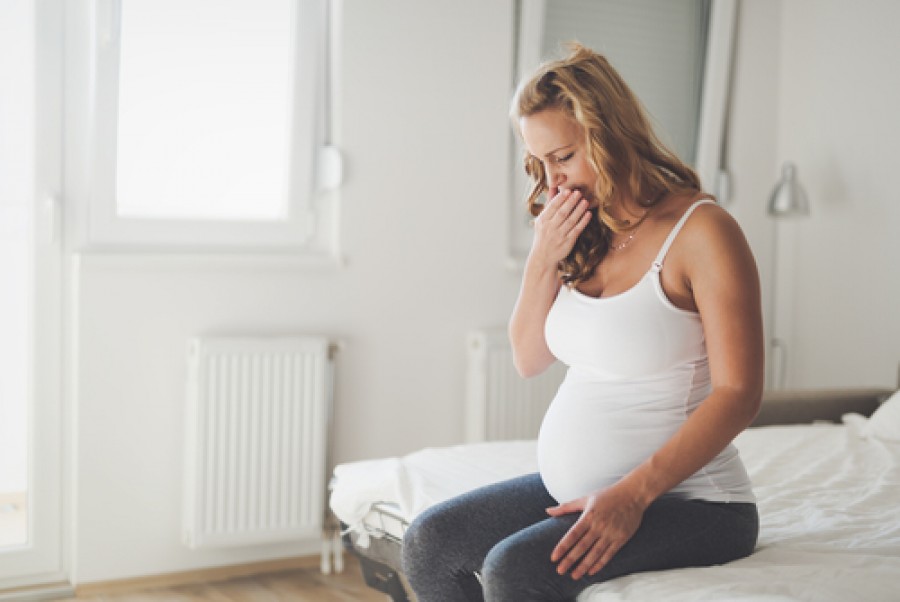Spotting During Pregnancy: What is it and what it mean?

Many women experience spotting – small discharges of blood from the vagina – during their menstrual cycle. This can be for a number of completely natural reasons, and is rarely something to worry about.
The same applies during pregnancy, although noticing spots of blood when you know you’re carrying a baby will feel much more alarming!
When you’re expecting it’s really important to know what feels natural and healthy for you and for your body, you are the best judge of when something isn’t right. There is no such thing as being over cautious when it comes to you and your baby, so it’s always worth chatting with your midwife if you do notice any spotting, even if it’s just so they can put your mind at rest!
Why will I experience spotting?
There could be a number of reasons why you’ll notice some spotting during your pregnancy. Much like during your regular monthly cycle, spotting is just your body’s way of ridding old blood from the womb and uterus.
Spotting is more common during the early stages of your pregnancy as your body starts to really adjust to the fact you have a baby growing inside you. Think of it as a ‘cleaning out’ process of your uterus!
What’s the difference between spotting and bleeding during pregnancy?
There are two main differences between spotting and bleeding during pregnancy. The first is the amount of blood and the second is the colour of the blood.
Spotting, as suggested, refers to only a small amount of blood being discharged, You might experience this only once, or you might experience it intermittently over the course of a few days.
If you notice blood continually for a few days, or a large amount of blood at once then this is referred to as bleeding rather than spotting.
When you are bleeding, you will also notice that the colour of the blood is different. In this case, it will appear more as a bright red colour – similar to during your heaviest flow of your period.
Do I need to worry about spotting?
As mentioned, spotting can seem alarming when you’re pregnant – it seems counterintuitive to being pregnant!
But be assured, it is a relatively normal and harmless part of being pregnant.
If you are concerned, always have a chat with your doctor or midwife so they can put your mind at ease and discuss if you are experiencing any other symptoms that could be an indication of something else going on.
Common Causes of Spotting During Pregnancy
#1 Early Stage Implantation
This is when the fertilized egg attaches itself to the wall of the uterus. This process can sometimes lead to spotting as your body adjusts to the fact it’s going to have a baby! This will occur during the very early stages, and it’s unlikely you will even be aware that you are pregnant!
#2 Intercourse
During pregnancy, the cervix of the woman, gets a rich supply of blood vessels. Any activity which irritates or damages these blood vessel, such as intercourse, can lead to spotting. This is perfectly normal, but if you experience any sharp pain or heavy bleeding, make sure you speak with your doctor. Read more on how safe is sex during pregnancy.
#3 Pelvic Exam
Just as is the case with intercourse, your cervix will have a rich supply of blood vessels during pregnancy. Pelvic exams are pretty regular throughout your pregnancy, but the experience can irritate or cause very minor damage to some of the blood vessels, resulting in some spotting.
#4 Placental Bleeding
The placenta is the tissue that helps to feed and nourish your baby while they are in the womb. Sometimes the placenta may get damaged or detach from its usual place, and this can lead to spotting.
#5 Labour
When you go into your labour, your body moves into the process of starting to move your baby out of the uterus. As you can imagine, this is a very stressful experience on your uterus and cervix. During the early stages of labour you may notice some spotting, which increases as your baby starts to make it’s way down and out of the uterus.
When should I discuss spotting with my doctor?
Anytime any of your pregnancy symptoms are making you feel anxious or worried, always have a chat with your doctor or midwife so they are aware of what’s happening, can offer reassurance and seek further tests if they think it’s needed.
Your midwife may also want to be aware of any spotting, so they can keep track and if they think it is excessive, can investigate further.
If you experience other symptoms such as sharp abdominal pain, feverish, or bleeding along with spotting make sure you seek immediate medical attention.
As mentioned before, stress can be a real problem for your health during pregnancy and getting peace of mind really is the best thing you can do for you and your baby. So never feel silly for bringing these types of things to your doctors attention.


